Hello friends!
It’s time for another installment of the occasional series I do, in which I invite an author to tell us five things—not only about their most recent book, but about their life too.
This month’s author is the wonderful and talented Suzy Vitello, whose new novel, Bitterroot, was described in a Kirkus Reviews rave as a “gripping and emotionally intelligent tale of resentment and loss” whose “memorable characters nimbly embody the larger cultural forces at war in contemporary America.” I couldn’t agree more. It’s also an absolute page-turner and—like everything Suzy writes—a deep pleasure to read.
I met Suzy many years ago through the Portland literary scene and, shortly after my first novel was published, she invited me to join her writers’ group. I was in the group for only a few years, but they were incredibly fruitful years, during which I wrote both Wild and Tiny Beautiful Things. Many gifts came from that time of sitting around a table sharing work with other writers each week, but high among them was getting to know Suzy, who is, quite simply, one of the best people there are. She’s smart, kind, thoughtful and good to her bones—and all of those qualities shine through in her writing.
Suzy also has an excellent Substack newsletter called Let’s Talk About Writing that I encourage you to check out after you’ve read her inspiring and insightful interview, in which she tells us all about how to make friends with our spidey sense.
Happy pub day, Suzy!
xCheryl
Tell us about a time when you took advice that turned out to be really good or really bad.
Back in the mid-eighties Cosmopolitan had this recurring feature: “What it’s like to live in…” Well, one mid-March day, my fifth year at Syracuse University, I was sitting in a café, reading that month’s feature, which happened to highlight the growing opportunities in Phoenix, Arizona. Gazing out the window into the icy squall that was typical of protracted Syracuse winters, the bleakness in contrast to the photos of blue skies, cactus and swimming pools that were spread out on the table next to my coffee, I thought, why not?
Yes, folks, I made a huge decision based on the advice of a fluff article, packed up my car two months later, and headed west. That led to three years of desert-living. And I mean “desert” both literally and figuratively. In those salad days I made one stupid career decision after another, cobbled together a serial sequence of minimum-wage jobs with school loan debt looming, while navigating triple-digit commutes in an un-air-conditioned Dodge Colt. I never did achieve the promised poolside tans (hello pale, freckled complexion that only burns to a radiant pink). But I did, during those years, give birth to a beautiful boy, my first child, Sam. So total waste? Maybe not.
Tell us about a personal transformation in your life or a change that you’ve made for the better.
If I ever write a memoir, I might title it: The First Domino. As many of us do, I occasionally ponder “the road not taken” and its cousin “what would have happened if.” I guess I’m talking about catalysts, and how they informed my path forward. The prelude to the first domino would be the choice to apply to Syracuse University as an undergraduate. Many authors state they knew they wanted to be writers from childhood. I did not. My choice to attend a huge university had everything to do with options. Freshman year, I declared myself an English major and then took classes in Hindi, public policy, and anthropology. I got hooked on the latter, and started down that road. A random exposure had me deathly ill with mono the first week of junior year, and I was sent home to recuperate. At the time my parents were in the process of divorce, so that was weird.
As soon as I could I scrambled back to SU, got a job at a local beer and sandwich place, and, due to my father’s badgering about “what the hell job can you get with a degree in anthropology” I changed my major to dietetics. This is where the story gets unwieldy, but the short version is, due to that first tipped domino (the mono germ) the road eventually led to meeting, then marrying, my first husband, and starting a family. Skip ahead three years, pregnant with baby number two, my husband died in a car accident.
Here’s where the dominos make a right-angle turn.
Another chance encounter led me to Oregon (by way of Southern California, but that too, is a long story). With two kids under three, a bit of cash from the accident’s settlement (a windfall at the time, but not enough to buy a home in SoCal), I set down roots in Portland in 1989. My extended family thought I was nuts. I was a twenty-eight-year-old single mom who knew only one person in Oregon, but my heart, my whole being, responded to Portland with love-at-first-sight hunger. And along with my lust for the city came a concurrent bolt of understanding that I wanted to write.
The sound of the fall of those dominoes still reverberates in my ear. Part music, part calamity, but connected so specifically to the life I now live, I’d be hard-pressed to extract a domino from the line-up.
Tell us about your new book, Bitterroot.
The striking beauty of Northern Idaho is only surpassed in my mind by its ideological polarity. Over the years I’ve had occasion to visit the area, most recently a couple of years ago when my friend Natalie and I passed through on our way to Montana where we were scouting the feasibility of holding a writing workshop (which we are doing in late June of this year).
The combination of breathtaking and rugged terrain, the history of Native exploitation, the boom-and-bust nature of Western life generally, and the interdependence that exists in a small rural community is such a tension-filled recipe for a novel—but in exploring all of this, and spending time researching recent policies in the state, I became particularly vexed over the recent law in Idaho poised to not only remove LGBTQ content from libraries and schools, but to arrest librarians who refuse to comply.
So that was the starting point. But at its heart, Bitterroot is a family story. Generational upheaval, sibling connection, and the way in which we define family beyond biology are all themes that drive the story. My main character, Hazel, is your classic outlier. Half-Japanese, but white-passing, after college she pursues a career in forensic sketch art, returning to the fictional town of Steeplejack where she was raised. Her fascination with kusôzu—which is the artistic rendering of decaying corpses—pushes her further from the normative sphere. Only her marriage to high school sweetheart (and town golden boy) Ethan Mackenzie affords her membership to Steeplejack’s “notable families.” But at the beginning of the novel, Ethan dies in a car crash, and from there, things get increasingly complicated.
Hazel’s twin brother Kento, married and living in the more liberal environment of Seattle, hires his former high school girlfriend, Corinda, as surrogate for a baby, but he’s shot by a member of Steeplejack’s growing anti-LGBTQ community during a gender reveal party. Kento survives, but the tables turn when Corinda changes her story, claiming that she was coerced into surrogacy, and reneges on her agreement with Kento and his husband, Tom.
Meanwhile, Hazel discovers her husband wasn’t who she thought he was. She also uncovers hidden family secrets about her grandparents’ forced internment during World War II, mirroring the same racism and prejudice that threaten to strip Kento and his husband of their basic rights to their baby. Then, a local militia set on physical violence charges up her driveway, but with the help of a local lawyer (and love interest), Hazel thwarts the effort. From there, there are more twists and turns, but the upshot is built on our heroine forging an identity that honors her heritage as well as her unique qualities, while coming to terms with the divisions in her town. A town she refuses to abandon.
Having experienced some of the same conundrums as Hazel (sudden loss of spouse at a young age, generational trauma due to parental and grandparental war-related displacement, and LGBTQ family members directly affected by religion-based anti-gay policies), I wanted to explore these tensions via a character struggling with her own burgeoning sense of self.
Once I embodied Hazel’s determination, Bitterroot was written at the pace of a fever dream, and found a home with a brand-new publisher, Sibylline Press, focused on publishing women aged fifty and older. Their collaborative model and enthusiastic advocacy immediately appealed to me, and the run-up to publication has been akin to being absorbed by a found family of sisters. (I hope that doesn’t sound too cult-like.)
Tell us about a regret you have or a mistake you’ve made.
I lost my only sibling, Patti, to an aggressive cancer in 2017. We lived on opposite coasts, and had, other than our parents, little in common. She was a devout Catholic, and I’m somewhere between agnostic and atheist. She was an accountant, managing the books for a nursing home, but her true love was running her own horse farm—a demanding and physical job always threatening catastrophe. My work, in contrast, has always been less traditional, more flexible and ephemeral. Just like my earlier decision to attend a big university with options, I celebrate all those forks in the road—the chance to try something new, write something new, or just wake up and play with my four-year-old grandson all day.
That said, I regret that I wasn’t more proactive in planning get-togethers with my sister. Our semi-annual visits took place mainly in our hometown in rural New York State—where she continued to reside. She came out to Oregon a handful of times over the course of thirty years, but I wish I’d prioritized some trips to neutral locations, where, free of quotidian toil, we may have deepened our relationship in adulthood.
As cliché as it sounds, you never know what the universe will fling your way. Don’t take your people for granted.
Tell us your best advice.
Embrace and continually feed your hunger. Joy isn’t doled out in a vacuum; the crucial ingredient is your recognition of those elements that create that personal joy. So curate them. Celebrate them. Learn from rejection, regret, wrong turns, and apply the lessons to the next thing. Hone your intuition. Make friends with your spidey sense. Pursue your particular passion and then share your wisdom and expertise. The sharing of wisdom and expertise has been particularly hard for me (hello imposter syndrome), but I’m working on it. On reflection, that impulsive decision I made forty years ago to take the advice of a perfume-scented article may have been off the mark, but I continue to draw from the youthful wonder of those days. I make art from it.
Suzy Vitello’s award-winning short pieces have appeared in AARP, The Rumpus, The Southampton Review, Mississippi Review, anthologies and other literary journals. Her novel, FAULTLAND, was published by Ooligan Press in March, 2021, and her young adult novels include THE MOMENT BEFORE, THE EMPRESS CHRONICLES, and THE KEEPSAKE. She holds an MFA from Antioch Los Angeles, and works as a freelance developmental editor and book coach.

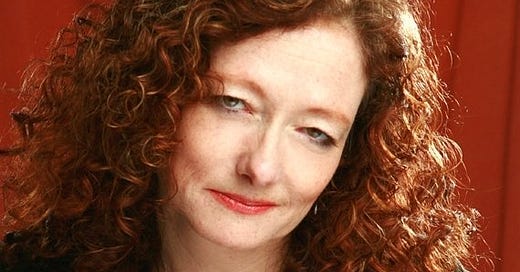



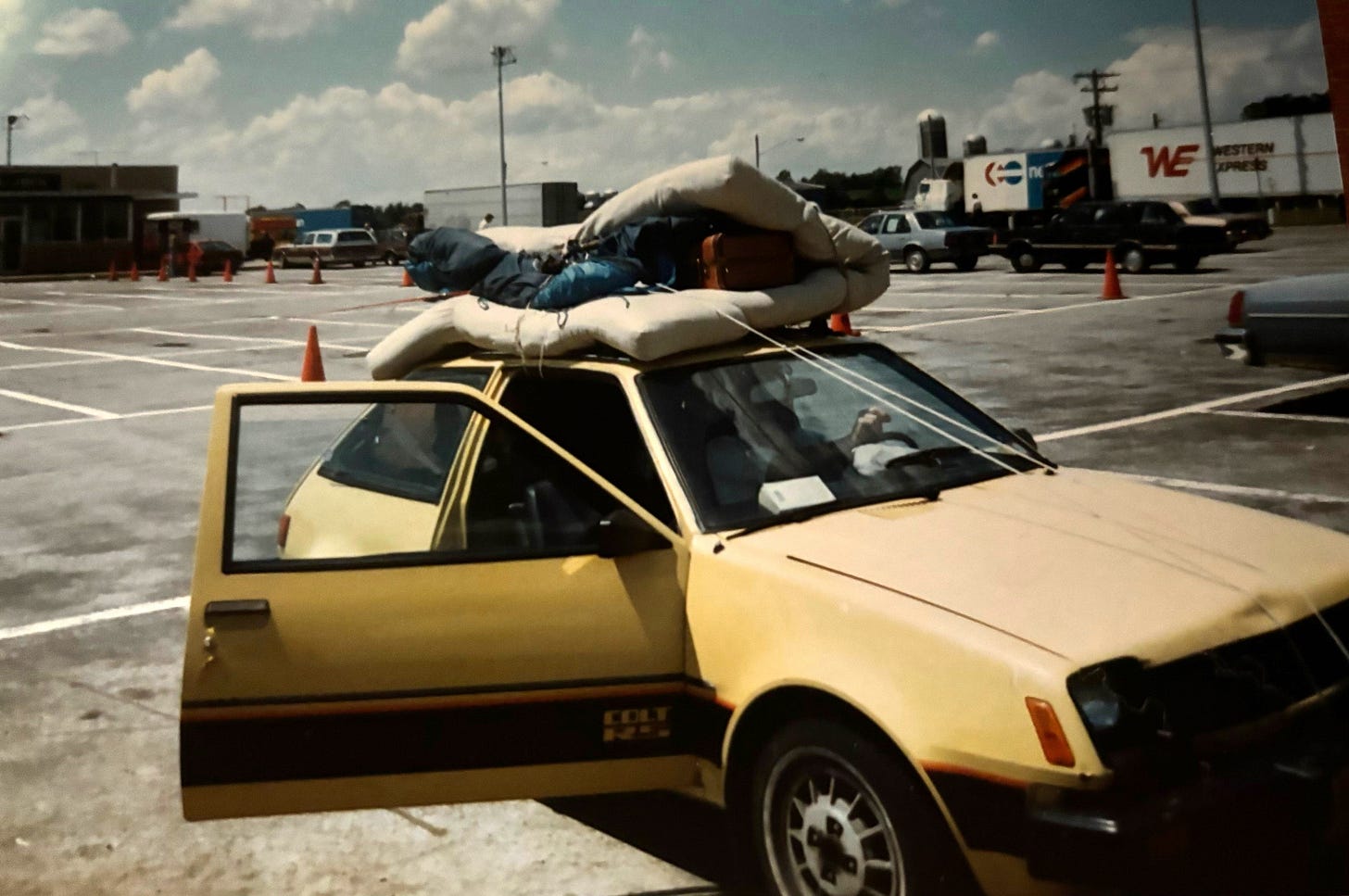
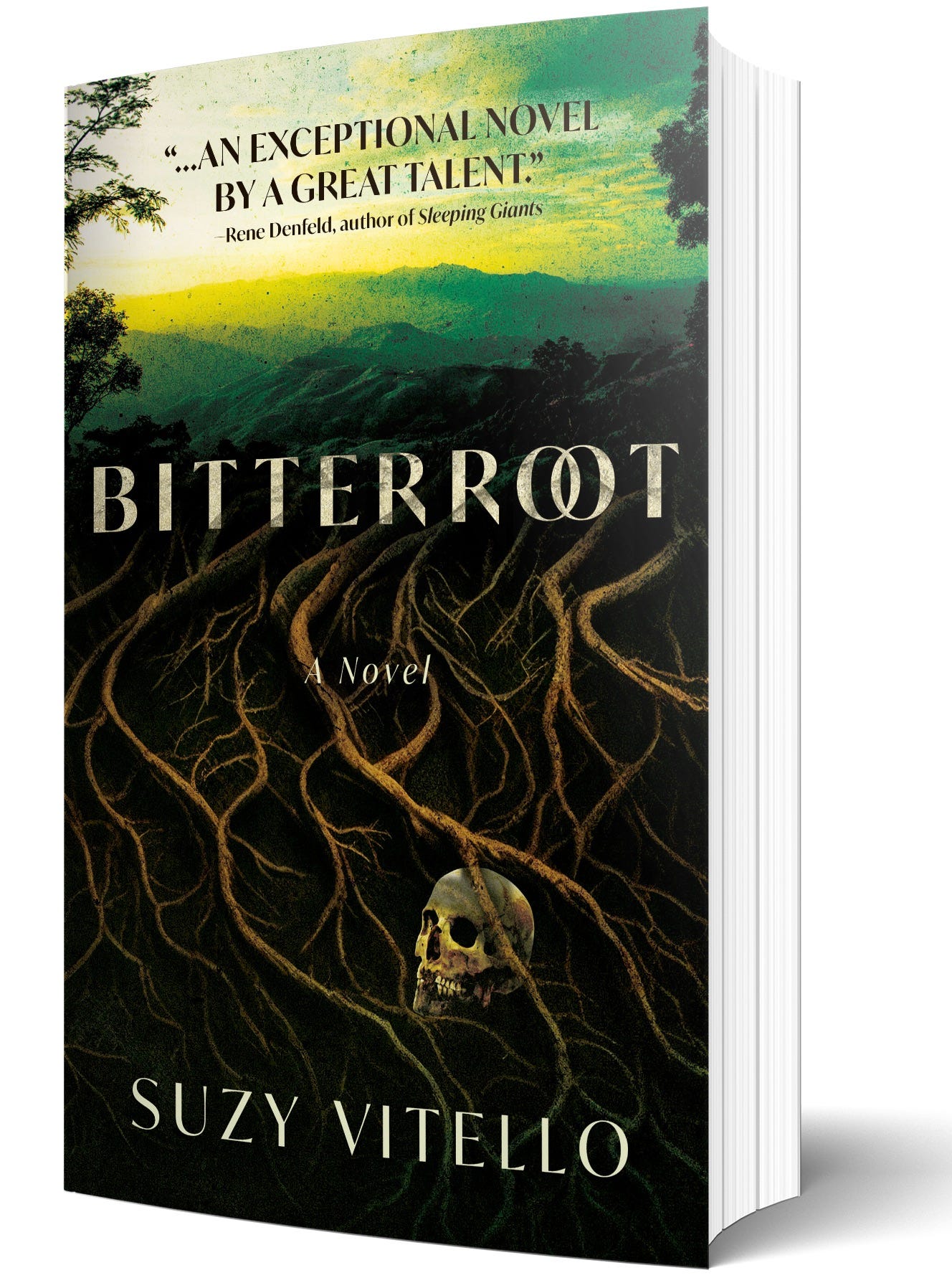
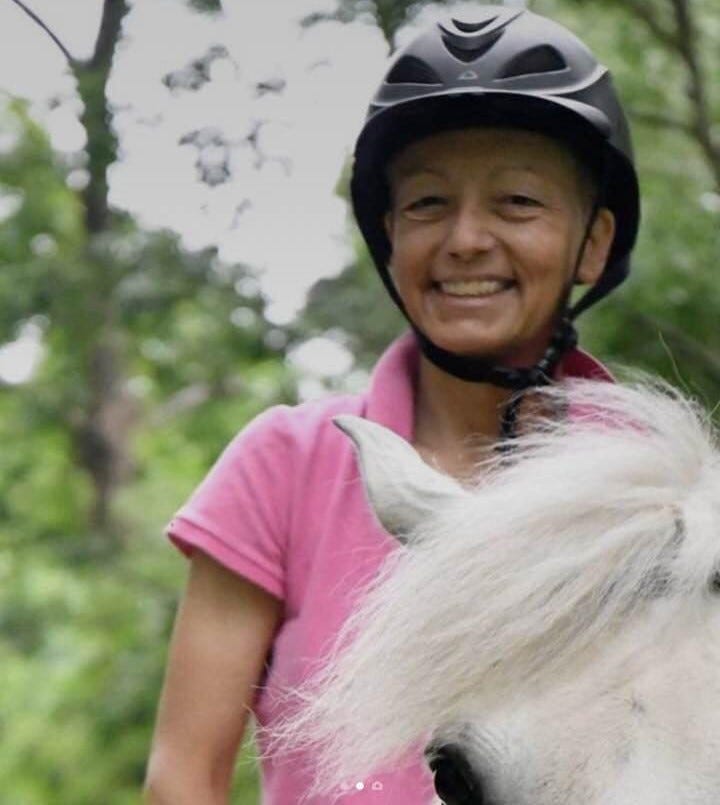
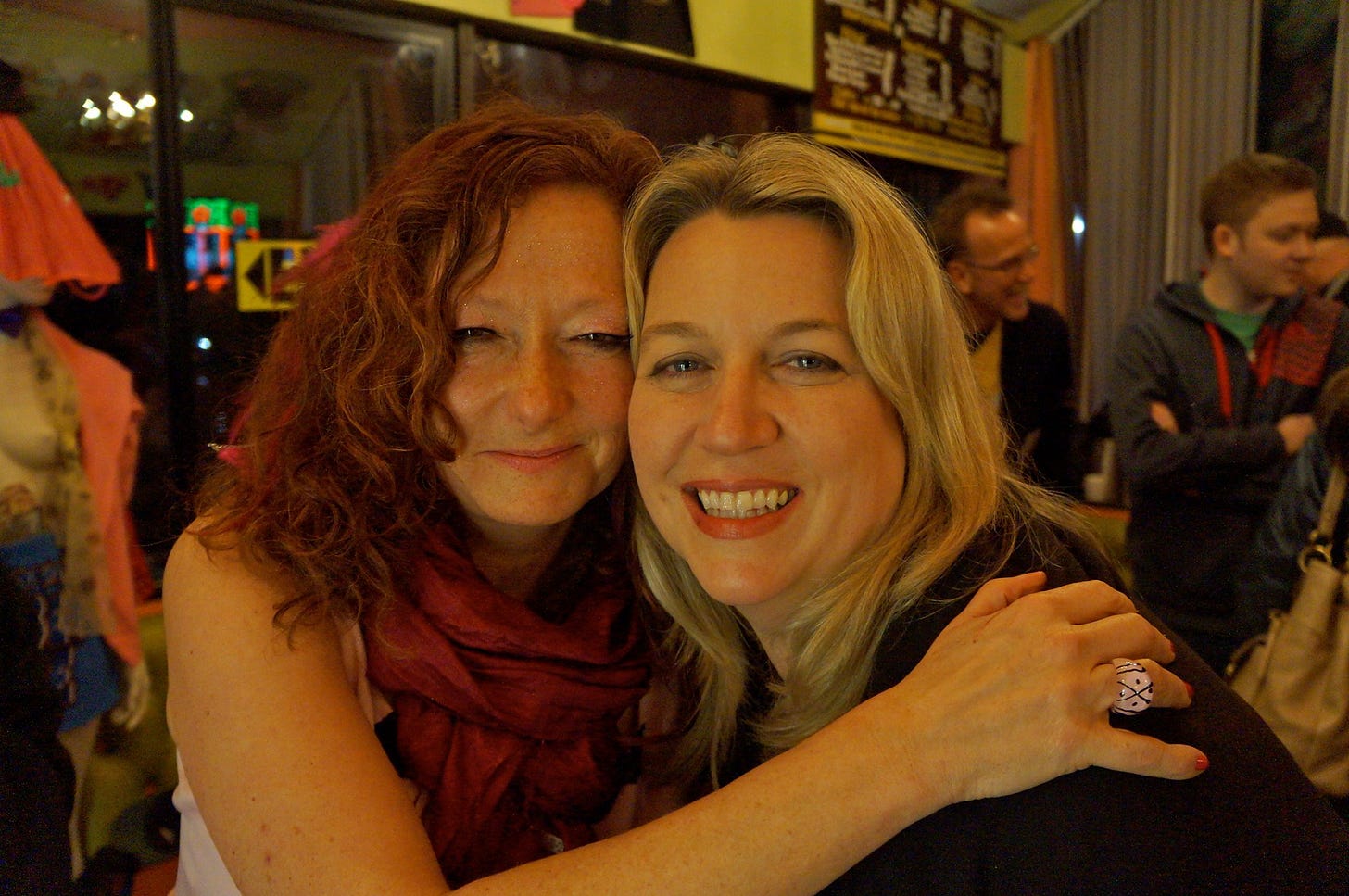
Thank you Cheryl for sharing Suzy’s story. Calling her one of the best people out there left me intrigued, and she didn’t disappoint! That last paragraph was particularly poignant— what beautiful wisdom on a Tuesday morning. Looking forward to reading Bitterroot. And possibly The First Domino one day!
Thank you to Cheryl, and her many readers. I am gobsmacked and grateful to have such a loving community here. xoxo